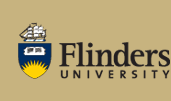The 18-unit Graduate Certificate in Musculoskeletal Medicine and 36-unit Graduate Diploma in Musculoskeletal Medicine are offered by the Faculty of Health Sciences.
Both courses are open to health and allied health professionals to develop skills in the diagnosis, treatment and rehabilitation of patients.
The clinical topics are offered in 5-day intensive in-service blocks with a specific vocational bias and may also be taken on a non-award basis.
Admission requirements
Applicants must hold an approved undergraduate degree or equivalent qualification in a health-related area, eg medicine, nursing, occupational therapy.
Course aims
The course aims to assist professional candidates to become more competent in diagnosing, treating and rehabilitating patients presenting with dysfunction of the musculoskeletal system.
By participating in the topics that constitute this course, medical and other health professionals will:
- extend and utilise their knowledge of the anatomy, physiology, pathology and biomechanics associated with the functions and disorders of the musculoskeletal system
- develop their understanding of the impact of biological, psychological and social factors on musculoskeletal health, work and social engagement
- efficiently diagnose patients&##39; needs, and develop and evaluate appropriate courses of investigation and treatment that facilitate a return to normal function and participation
- further their ability to locate their own practice within the broad professional community associated with the care of patients requiring treatment for musculoskeletal injuries and disorders, and prevention of these injuries and disorders.
Learning outcomes
At the completion of the course the candidates are expected to be able to:
- demonstrate a sound knowledge of the structure and function of the musculoskeletal system; demonstrate a sound knowledge of common and dangerous diseases and trauma affecting the musculoskeletal system; distinguish the numerous aetiologies of musculoskeletal disease; understand the interrelation between the biological, psychological and social aspects of injury, disease, treatment, rehabilitation and long term recovery
- systematically examine all aspects of the musculoskeletal system and identify possible sources of pain/dysfunction; assess the evidence for different clinical practices and analyse examining procedures of the musculoskeletal system; integrate a knowledge of the musculoskeletal system with a knowledge of biomechanics, occupational factors, and mechanisms of injury
- arrive at a rational functional diagnosis of the patient and devise appropriate further cost effective investigations and management; suggest and where necessary implement a course of treatment which will hasten return of normal function and occupation; assess effectiveness of treatment and alter treatment if necessary
- understand the role and impact of medical, surgical and non-surgical treatments; know how and when to refer to appropriate specialists in a cost-effective, efficient and informative manner; have a clear understanding of the extent and limits of their professional competence; be able to interpret the needs of patients who have been referred by other professionals; write a comprehensive medico-legal report and be prepared to give expert evidence
- critically evaluate their practice through systematic audit and reference to published guidelines; investigate the evidence base for particular approaches to diagnosis, investigation, treatment and rehabilitation; search the existing literature on a specific topic and present an analysis that could be developed for publication in a relevant refereed journal; develop skills and experience in communicating with colleagues and other professionals.
Program of study
To qualify for the Graduate Certificate in Musculoskeletal Medicine, a student must complete the 18 units as set out below with a grade of P or NGP or better in each topic.
Not all topics are necessarily available in a given year.
Except with permission of the Faculty Board no topic may be attempted more than twice.
Core - Year 1 topics
MSKM8011 Management of Upper Limb Dysfunction (4.5 units)
MSKM8012 Management of the Lower Limb Dysfunction (4.5 units)
MSKM8013 Management of Vertebral Column Dysfunction (4.5 units)
MSKM8014 Evidence-Based Medicine Practice Portfolio (4.5 units)
